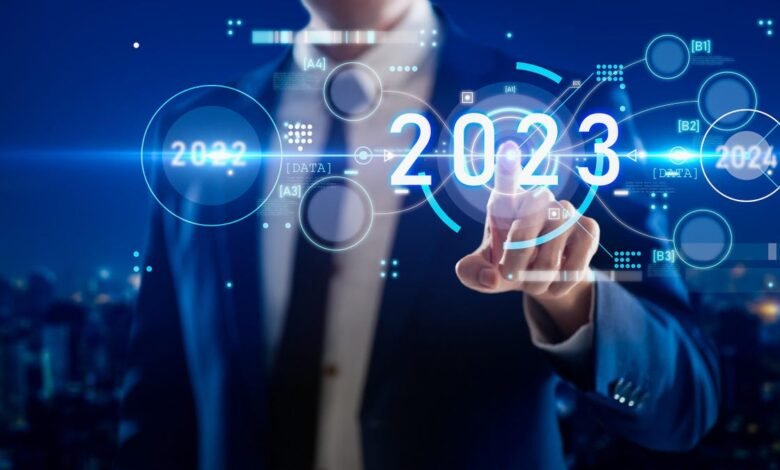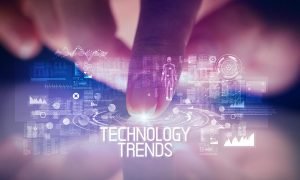How Has Technology Affected Usin 2023?

How Has Technology Affected Usin 2023? Over time, technology has changed the way our world and daily lives are. Senior technology has also generated top-notch tools and resources that have made it possible for us to get access to useful knowledge. For instance, smartphones and smartwatches are examples of technology with numerous uses. Computers in the modern day are more potent, quick, and portable than ever. Your online functional skills are applicable to this technology at this time. Because of all these revolutions, technology has also made our life simpler, quicker, and more fun.
In this post, we’ll talk about how technology affects us and how it’s helped seniors live better lives both inside and outside of the home. It is now simpler to interact with one another in a shorter length of time thanks to the emergence of instant messaging apps and social media platforms. Seniors may stay in touch with loved ones, and carers now have new options to check in on their elderly parents or patients.
Read More:Clearing Cache in Safari/How to Delete Cache
Technology has recently created novel gadgets like tablets, voice assistants, and wearables. These gadgets enable instant money transfers, clothing purchases, meal delivery, grocery shopping, furniture purchases, and more. Due to technology, there have been changes in how we socialise, have fun, and consume media. It is made fun progressions, but at the same time, it has made significant headways in well-being about home security and clinical gadgets.

Technologies are becoming more complicated and interrelated. More than ever before, computer software is employed in a wide range of products, including vehicles, aircraft, medical equipment, financial transactions, and power systems. These things seem harder to understand and occasionally control as a result. There is less human connection than ever before and greater potential for biases to be established and institutionalised in our technology systems since government and business surveillance of people and information processing is mostly dependent on digital technologies and artificial intelligence. The growth of bioengineering is paving the way for challenging philosophical, political, and economic debates about how humans and nature interact. Additionally, control over these big and small systems and gadgets is becoming more and more centralised thanks to the cloud.
Although many countries around the world are only now beginning to take significant steps toward regulating computer technologies, scholars must examine how technological advancements are changing life in the world in both positive and negative ways, as well as what social, political, and legal tools are required to help shape the development and design of technology in positive directions in light of this increasing complexity. The regulations governing cross-border technology interchange and global data flows are still being fundamentally rethought, which is an impossible undertaking given the speed of technological progress and the belief that it will only continue to improve.
Not only is technical advancement interesting right now, but technology policy is as well. Our understanding of how to use, safeguard, and even restrict our technology is just as sophisticated and complex as our technologies themselves, which may be more advanced and complex than ever. The structures of technical systems, which are primarily determined by institutional and governmental policies, have a significant impact on social groups and agencies. From tightly controlled, closed, open systems designed according to stricter, more hierarchical models to extensively distributed, open, open-source systems, these patterns span the spectrum. In addition, just as our understanding of technology is developing in unexpected and intriguing ways, so is our understanding of the social, cultural, environmental, and political dimensions of emerging technologies. As we map out the many ways that technology is changing our society, as well as the changes we want to see and the tools we have at our disposal to try to influence and lead those movements, we are becoming more and more conscious of the challenges and importance of doing so.
Commitments and Entanglements of Innovation

Innovation may be a huge source of idealism. The biggest challenges facing our society now include starvation, disease, and climate change, to name a few. For those who believe in the power of advancement and the dedication of creative obliteration to advance financial outcomes and improve personal fulfilment, innovation is a crucial financial driver (Schumpeter, 1942). However, technology can also be an instrument of great terror and oppression, including biases into information processing algorithms and automated decision-making processes, sharply escalating economic and social gaps between and within countries, or creating new assault strategies. In fact, some academics claim that the term “technology” was first used in the nineteenth and twentieth centuries, signifying a departure from the more secure idea that smaller, The riskier perspective that individual pieces of equipment were a means to political and social progress was that more sophisticated technical systems were a semiautonomous kind of progress in and of themselves (Marx, 2010). A new group of “new Luddites” has recently drawn scathing condemnation from technologists for their views. To decrease the negative consequences that technological progress has on society, these people are adamant about slowing down technological development and innovation (Marlowe, 1970).

A fundamentally pessimistic view that holds that technological systems have advanced to a point beyond our control and a fundamentally optimistic view that holds that humans use technology as a tool to achieve more meaningful goals are frequently the two opposing perspectives on technology at the centre of disagreements regarding new technologies and the global changes they bring. Technology philosophers have argued, according to Oberdiek and Tiles (1995), that both of these perspectives are only partially true and that a merely positive or negative view of technology is insufficient to represent the subtleties and complexity of our interaction with it. Learn more about the technology that has impacted our lives today by visiting the website now. Understanding technology and how we can make better decisions about its design, deployment, and improvement requires capturing this nuance and complexity through in-depth analysis of the impacts of various technological advancements and the ways they have played out in all their complicated and contentious messiness around the world.












5 Comments